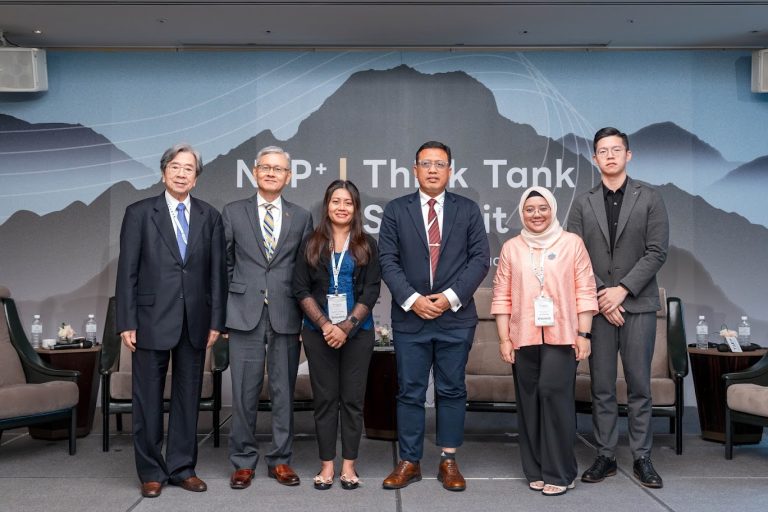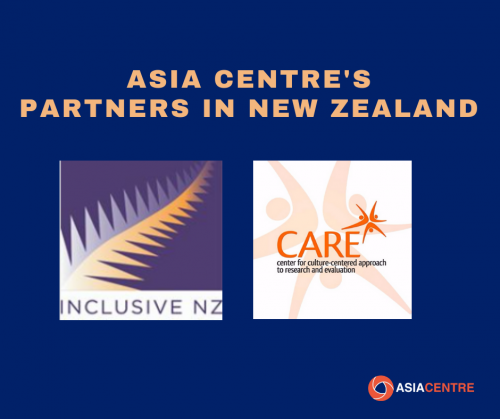
Structural challenges to civic spaces caused by laws, policies and other hindrances, particularly the critical role of media in fostering information integrity, must be examined to ensure civic spaces in Asia remain well-functioning. Towards that end, the civil society sector must build and sustain a cross-sector coalition to support one another. This was the main message across the two panel discussions hosted by the International Development Research Centre (IDRC) during Asia Centre’s 9th Annual International Conference, held in Bangkok from 21 to 23 August 2024 under the theme “Shrinking Civic Space in Asia: Stories of Resistance and Pushback.”

In her opening remarks on 21 August 2024, Caroline Ford, Director of IDRC, framed the two panel discussions in the conference by stressing that civic space is a vital collective realm where civil society organisations influence and define societal values. When civic space shrinks, it leads to unequal access to freedoms and policymaking. To tackle these issues, we must draw insights from countries with a rich history of vibrant civic spaces, such as Thailand and Burma. Expanding civic space also requires ensuring the integrity of information, particularly online, as it significantly impacts electoral outcomes and civic engagement.
On 23 August 2024, IDRC hosted the first plenary session of the day “Shrinking Civic Space – Lessons from Southeast Asia”. This panel was moderated by Caroline Ford – Director of Democratic and Inclusive Governance, IDRC to discuss the evolving nature of civic engagement and activism in Asia. The panel focused on the key role CSOs in Thailand and Burma can play to impact laws and policies in their country.
Naiyana Thanawattho, Executive Director, Asylum Access Thailand (AAT), highlighted AAT’s efforts in collaborating with paralegal volunteers to support refugee communities within Thailand. She said they work to uphold refugees’ rights under both Thailand’s legal framework and international law. She added, AAT also shares data with other international organisations. Their strategy to hold the government accountable involves leveraging pressure from international treaties Thailand has signed.
Pyrou Chung, Director, East-West Management Institute’s Open Development Initiative, Knowledge for Development Foundation, highlighted the critical need for collaboration of CSOs from different sectors. She also stressed the challenges faced by indigenous communities in gaining legitimacy and representation. To effectively address issues affecting indigenous peoples, it is essential to mobilise human rights experts, CSOs dedicated to marginalised groups and other NGOs to work together.
Napas Thein, Fellow, Burma Policy and Community Knowledge Hub (MyPACK), shared the Burma context. While CSOs are actively addressing various issues in the country, the government has often overlooked their concerns. He proposed that a more effective approach would be to form a large coalition, leveraging academic expertise from abroad, rather than having CSOs work independently to influence the government. By building such a coalition, it would be possible to engage productive student groups focused on Burmese issues, connect with the Burmese community, and enlist the support of professors for fundraising and developing solutions for Burma.

Later in the day, IDRC hosted a second panel: “Information Integrity and the Digital Public Sphere in Asia”. It delved into the interplay between information integrity and the digital public sphere. Kundan Mishra, Senior Program Officer, IDRC acted as a moderator for this panel.
Rossine Fallorina, Sigla Action Research Center, shared that the primary concern with disinformation, especially during elections, is the inability to identify the sources behind it. Additionally, the lack of a clear definition and effective measures for disinformation has contributed to a muddled political discourse.
Wathshlah Naidu, Centre for Independent Journalism, highlighted the need to address the state’s responsibilities in the digital realm to safeguard information integrity. However, she stressed that the government must avoid excessive regulation that could infringe upon freedom of expression and speech.
Malavika Rajkumar, Senior Associate – Research and Policy Engagement, IT for Change, emphasised that freedom, plurality and diversity are fundamental principles when thinking about information integrity. To enhance information integrity, she urged the government to decentralise information, which would improve transparency and reduce the threat of information censorship.
IDRC’s partnership at Asia Centre’s 9th conference builds on the strong collaboration that began during the 7th conference in 2022. Now in their third year of cooperation, this year’s collaboration provides a valuable opportunity for both Asia Centre and IDRC to further strengthen their partnership and establish a foundation for continued cooperation.
The International Conference is Asia Centre’s annual event where it brings together its partners to share the outcomes of their programmes and network for future collaborations. Over the years, the conference has become a platform for a range of actors to meet and discuss key democracy and human rights issues.
To view the main conference article, articles on individual title partners, as well as TikTok videos and a photo album, read the main conference piece here.
If you would like to become a Conference partner for Asia Centre’s 10th International Conference “AI and Governance in Asia” or explore other collaboration opportunities, email us at contact@asiacentre.org. For more information, click here.
Asia Centre is a civil society research institute in Special Consultative Status with the United Nations Economic and Social Council. It serves as a knowledge partner and undertakes evidence-based research as well as provides capacity-building training for end beneficiaries. If you would like to collaborate with the Centre, please send an expression of interest to contact@asiacentre.org.
Follow Asia Centre’s social media channels for more information.




